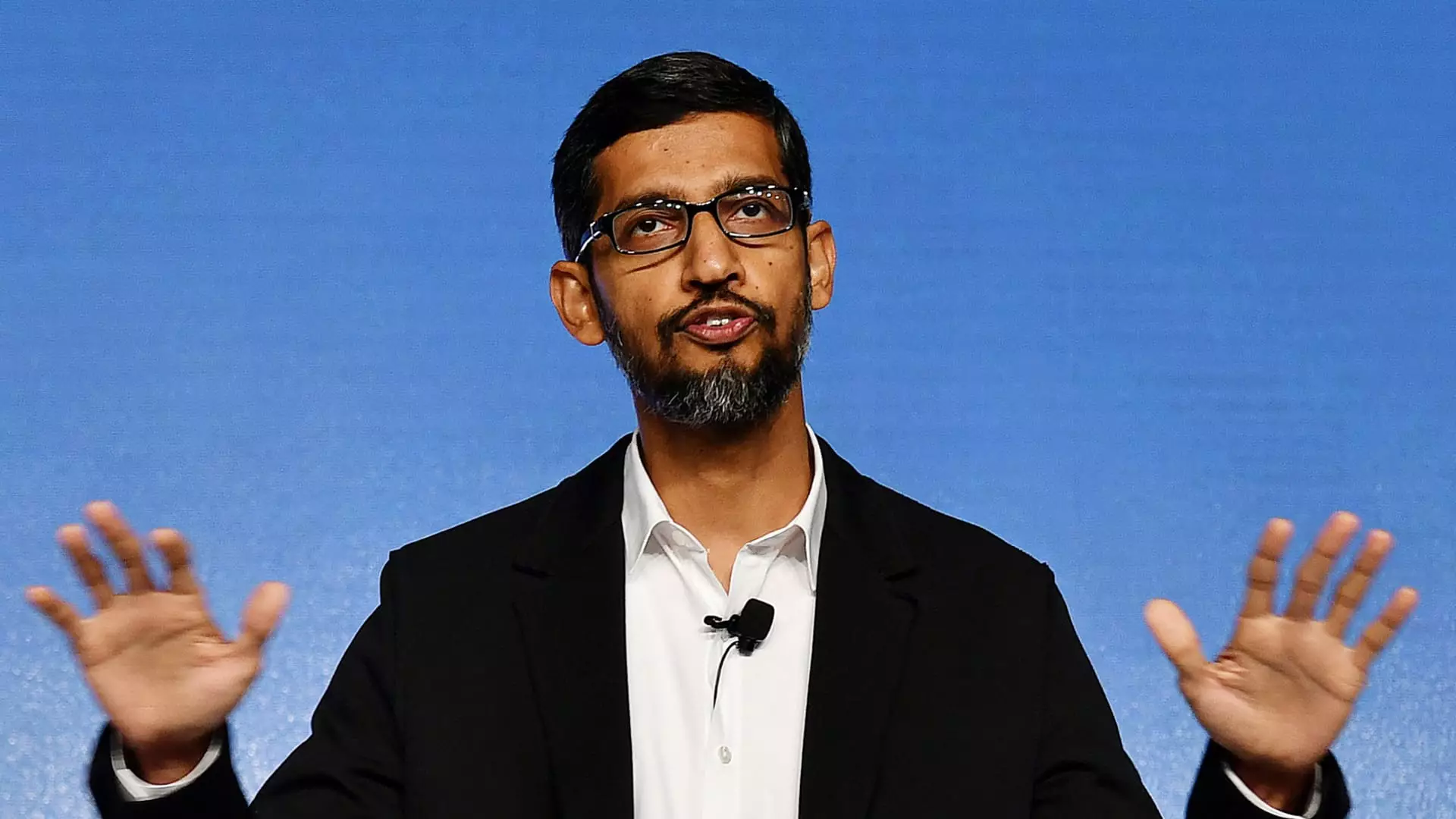In a company as influential as Google, the intersection of workplace culture and political expression has become a contentious battleground. Recent revelations indicate that as the U.S. elections approached, Google executives intensified efforts to monitor and restrict internal discussions related to politics. This effort appears to be fueled by a desire to maintain neutrality in the company’s services, which people rely upon for credible information. However, the implications of such restrictions on employee expression and culture merit a deeper examination.
As reported by CNBC, prior to the elections, Google’s leadership issued stern reminders to employees discouraging them from sharing their political opinions on Memegen, Google’s internal discussion forum. Despite these instructions, many employees persisted in voicing their sentiments through memes, drawing attention to company policies and broader political issues. This resistance highlights a significant tension within the organization, pitting a top-down directive against the spontaneity of employee dialogue. The atmosphere suggests an underlying frustration among the workforce, who may feel that their voices are being stifled in an era where political engagement is increasingly vital.
In a memo circulated prior to the elections, Google CEO Sundar Pichai underscored the company’s commitment to being a trusted source of information. He emphasized the importance of Google’s platforms, such as Google Search and YouTube, in providing reliable content to users with varying views. Pichai’s exhortation for employees to remain cognizant of their contributions to the company’s image raises questions about the balance between maintaining professional decorum and fostering an environment that encourages open dialogue.
The tension between Pichai’s directive and employee sentiment brings to light a pressing contradiction in corporate culture: the desire for inclusivity and the requirement for conformity. While Pichai advocates for a neutral workplace, employees are left navigating an emotional landscape where personal beliefs and professional responsibilities collide.
Google’s history of managing internal discussions reflects a broader cultural evolution in the tech giant. Since implementing a policy in 2019 that prohibited statements deemed insulting or demeaning, the company has shifted towards a more controlled dialogue environment. Critics of this policy have described it as overly broad and stifling, asserting that it limits the ability of employees to engage meaningfully with one another. Ironically, as Google sought to curtail divisive rhetoric, it may have inadvertently suppressed the diversity of thought essential for a thriving workplace.
Furthermore, the expanded content moderation practices point to a proactive approach by the company to prevent inflammatory discussions. However, there is a fine line between moderation and censorship, with the potential for alienating employees who crave the space to express personal views. This dynamic was notably highlighted by employee feedback regarding the recent updates to Memegen, which now prohibits sharing personal political opinions and geopolitical issues.
The tension surrounding free speech in workplaces like Google is not new. A pivotal moment occurred in 2019 when the U.S. National Labor Relations Board mandated Google to disseminate employee rights, including the right to discuss workplace conditions freely. This ruling was a response to allegations that the company suppressed dissenting political views, raising red flags about the nature of discourse at one of the world’s most powerful tech firms. The implications of this ruling have reverberated within Google, hinting at a continual struggle for employees to assert their rights without facing corporate backlash.
The handling of the internal Project Nimbus contract provides another example of the fallout from political discourse. After employees expressed discontent over the project through Memegen, Google temporarily shut down the platform, raising further questions about the extent to which political discussions are welcome among staff.
As Google grapples with the ramifications of its internal policies, the question remains: how can the company cultivate a culture that values both professional integrity and personal expression? The balance between enabling political speech and upholding a neutral work environment is delicate, requiring a nuanced approach. If Google aims to be a leader not just in technology but also in progressive workplace culture, it must find a way to encourage authentic dialogue among its employees while navigating the complexities of public perception and corporate responsibility. The ongoing discourse surrounding Memegen serves as a poignant reminder that the dialogue about political expression in the workplace is evolving, and companies must adapt to this changing landscape if they hope to maintain their status as providers of reliable information in an increasingly polarized world.

